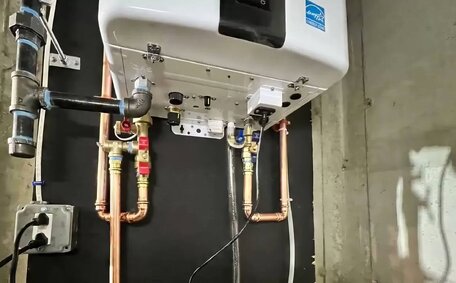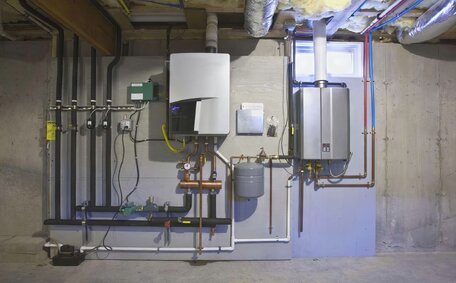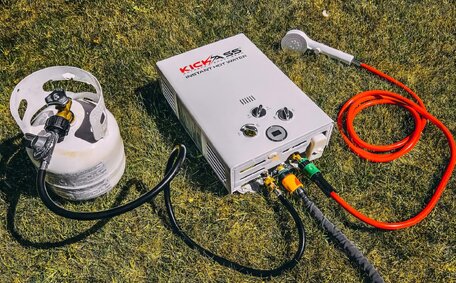Introduction: Understanding Plumbing Emergencies and When DIY May Apply
Unexpected plumbing emergencies can lead to significant property damage or pose safety risks if not addressed. While a leaky faucet may appear trivial, without timely intervention, it can develop into a more serious issue. Determining whether a repair is within your skill level or requires professional intervention is critical.
DIY solutions might be suitable for minor leaks, clogged drains or constantly running toilets, provided you’re equipped with the right tools and know-how. Turning off water valves, snaking pipes, or replacing faucet washers are reasonably straightforward tasks for handy homeowners. However, significant plumbing emergencies like burst pipes, sewer backups, or major appliance leaks typically demand professional repairs.
Calling in a professional plumber ensures safety, prevents further damage to your home, and guarantees reliable repairs. The key is evaluating the severity of the issue, ensuring you have the appropriate equipment for your needs, and recognising when to seek assistance. Should you doubt your repair capabilities, it’s prudent to consider specialist services when faced with complex issues.
Assessing if Your Plumbing Issue can be Safely DIYed
To determine whether to DIY a plumbing repair, carefully assess your abilities against the repair’s complexity. Start by closely observing the problem - is it a minor leak or full pipe burst?
Perform a basic assessment before attempting any repairs. Isolate leaks by turning off the main water valve, and attempt to clear clogged drains with a plunger. If the issue persists and you need help considering underlying complications like pipe corrosion, assess your capacity to resolve them.
Potential risks also determine if DIY is appropriate. If there’s any risk to personal safety, it’s essential to call professional services.
Flooding from ruptured pipes, similar to emergency glass scenarios, can cause significant property damage, and there is a risk of electrocution in wet areas. Moreover, complex tasks, such as working in confined spaces or handling delicate materials like window glass, require the skills of qualified tradespeople.
Minor issues like faucet drips or showerhead replacement are DIY-friendly, but complex repairs involving gas lines, sewer pumps, or electrical work require licensed plumbers. Exercising caution and seeking expert consultation when unsure should also prevent injury or issues that may complicate your application of DIY fixes.
Common Household Plumbing Emergencies and Simple Fixes to Try
Some common household plumbing emergencies homeowners may attempt DIY fixes for include:
- Clogged sinks or tubs - Try a plunger, baking soda/vinegar treatment or mechanical snake.
- Leaky faucets - Replace worn washers or O-rings using basic tools.
- Running toilets - Check the flapper valve, float arm, water level or valves. Replace parts as needed.
- No hot water - Reset hot water heater pilot lights or replace blown fuses on electric units.
- Odd smells from drains - Pour baking soda and vinegar mixtures down the drain before rinsing with boiling water.
Before starting, ensure all areas are dry and you have the necessary tools and protective equipment ready. Safety is paramount in any DIY project, and procedures should be followed to minimise risks akin to professional care support standards.
Tools, Skills and Safety Precautions for DIY Plumbing
Attempting DIY plumbing repairs suggests you can apply the proper equipment and skills on your own to avoid injury or property damage. Essential items include:
- Basic toolkit - adjustable wrenches, screwdrivers, pliers, hacksaw, and flashlight.
- Plunging equipment - cup plunger, closet auger, and drain or pressure plunger.
- Protective items - eye protection, dust mask, work gloves and bucket to catch leak drips.
Essential skills for minor repairs encompass identifying pipe types and fittings, discerning glass for window replacement, operating shut-off valves, removing components without excessive force, and reassembling plumbing fixtures. Understanding when to use lubricating greases/ penetrating oils is also beneficial.
Health and safety considerations should be at the forefront when attempting DIY plumbing.
Water damage, unsanitary contamination risks, and electrocution dangers associated with appliances involving different types of motors or heating elements can occur.
Being able to evaluate if extensive corrosion, hidden leaks in walls/ceilings or severely blocked pipes are involved is vital. If linguistic complications or health risks arise, stop any undertakings and, if necessary, visit emergency medical services or call a licenced professional. Understanding your limitations is crucial to maintaining safety during DIY plumbing tasks.
Identifying Severe Plumbing Situations Needing a Professional
Certain plumbing emergencies unquestionably demand immediate professional assistance to address safely. These include:
- Gas leaks - Detected by a 'rotten egg’ smell. Evacuate the property and call the fire department and gas company straight away.
- Burst water pipes or heating unit leaks - Can cause rapid flooding and property damage if not resolved quickly by a licenced plumber.
- Sewage back-ups - Attempting to unblock sewer piping without proper equipment exposes one to health risks from raw sewage overflow, which could worsen an existing medical condition—a scenario your doctor would strongly caution against.
- Complete drain line blockages - While partial clogs may be DIY amenable, completely blocked drains require mechanical clearing by professionals to avoid pipe damage or leakage.
- Well pump malfunctions - Only qualified technicians can safely inspect and replace faulty components within well pump systems.
- Major appliance leaks - Swimming water or electrical malfunctions in appliances like hot water heaters demand they be serviced by qualified personnel.
Neglecting to use skilled tradespeople for severe plumbing issues can lead to safety hazards such as electrocution, explosion, or contamination. Additionally, lack of technical knowledge may lead to further building damages and higher repair costs overall if problems are exacerbated through DIY attempts. In such cases, trusting in expert tradespeople remains the prudent choice.
Hiring a Plumber: When It’s More Cost-Effective Than DIY
Attempting DIY plumbing repairs can seem tempting to save money initially, but hiring a professional plumber often proves more cost-effective long-term.
Repairs done by an inexperienced DIYer may be short-lived, often leading to the need for additional fixes. Furthermore, lacking the necessary tools can cause damage, leading to expensive repairs, similar to those needed for broken glass. DIY methods pose significant safety risks and liability in case of accidents, so remember to contact us for expert advice.
Conversely, licenced tradesmen like Croydon Park Plumbing leverage years of expertise to accurately diagnose issues and implement reliable, code-compliant solutions the first time. Their all staff trained and extensive equipment inventory also prevents the need to pick up or rent specialist plumbing tools most homeowners lack.
While professional service charges are higher, you receive guaranteed results that won’t need revisiting shortly after. Reflecting on possible personal injury lawsuits or liaising with your insurance company for your claim due to flawed DIY tasks, enlisting a certified plumber can take the edge off despite marginally increased initial expenses across varied repair contexts.
Before deciding between DIY or professional assistance, analyse:
- Expected costs of materials/tools for self-repair versus service charges
- The probability of needing repeat repairs if issues arise again
- Potential property damages arising without proper techniques
- Injury, contamination and legal risks present with self-servicing
This cost-benefit evaluation will determine if spending more on a licenced plumber mitigates longer-term expenses and dangers.
Preparing Your Home to Prevent Plumbing Emergencies
Preventing plumbing problems involves routine inspections and maintenance of your plumbing system, and knowing when to call specialists for upkeep.
DIY preventative measures include:
- Inspecting exposed pipes and joints for leaks annually. Look for rust, damp spots on walls or dripping sounds.
- Pouring hot water and baking soda mixtures down drains monthly to keep them clear of grease/debris buildup.
- Checking under sinks for pooling water indicating potential seal cracks or loose connections.
- Regularly running all taps each week for a few moments prevents stagnant water issues and mineral deposits from causing trouble.
- Clearing sink/tub strainers regularly to prevent clogs reaching deeper piping.
A licenced plumber from your local area like Croydon Park Plumbing can provide professional preventative maintenance on key household systems like:
- Hot water units - Flushing, anode checks, gas pressure/flame inspections yearly.
- Toilets and valves - Adjustments to prevent running water and leaks.
- Sewer/drain pipes - Hydro jet cleaning and camera inspections.
Implementing simple monitoring practises and utilising maintenance services minimises costly breakdowns over time. Regular maintenance of your plumbing system can prevent emergencies and safeguard your home.
Conclusion: Making the Right Choice for Your Plumbing Needs
Assessing the severity of plumbing issues within your capabilities and clearly distinguishing DIY repairs from those requiring professional expertise is key for homeowner safety and budget management.
Those living alone may manage minor leaks, partial drain clogs, or simple faucet replacements themselves, provided they have the necessary tools, skills, and safety knowledge. However, burst pipes, appliance malfunctions or sewerage backflows unquestionably demand urgent licenced tradespeople to mitigate risks.
By evaluating repair complexity, costs, personal competency and potential dangers as advised, readers can make informed choices between DIY measures and professional interventions for common plumbing emergencies.
Croydon Park Plumbing is at your service 24/7 to ensure reliable, compliant, and durable plumbing solutions. Engage with qualified professionals when DIY is insufficient to protect yourself, your family, and property effectively.






